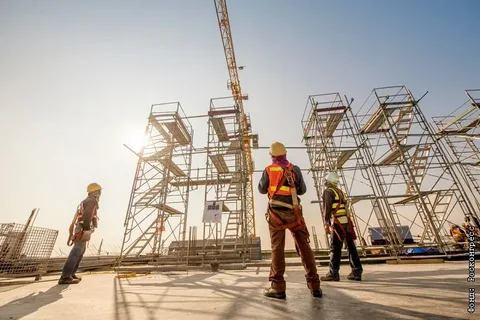Construction projects, whether small residential builds or large-scale commercial developments, involve numerous intricate processes. From securing permits to coordinating subcontractors, every stage requires precise planning and execution. Hiring the best general contractor in San Francisco ensures these complexities are expertly managed, resulting in a project that is completed on time, within budget, and to the desired quality standards. This article explores how general contractors streamline construction projects, focusing on their key roles, benefits, and how they address challenges effectively.
What Is a General Contractor and Why Are They Important?
A general contractor is a professional or company tasked with overseeing all aspects of a construction project. Acting as the project manager, the GC coordinates various activities, including labor, materials procurement, and compliance with regulations. Their role is indispensable, especially for clients unfamiliar with construction processes. With a GC at the helm, projects benefit from expert management, which translates into smoother execution and better results. By acting as the single point of accountability, general contractors simplify what can otherwise be a chaotic and overwhelming endeavor.
Centralized Project Management
One of the most significant ways general contractors streamline construction projects is through centralized management. Construction projects involve multiple stakeholders, from architects and engineers to subcontractors and suppliers. Without proper coordination, miscommunications and delays are almost inevitable. A GC acts as the central hub for all project activities, ensuring clear communication between all parties. This streamlined approach reduces confusion, prevents conflicting directives, and ensures everyone works toward the same goals.
Centralized management also extends to scheduling. GCs develop detailed project timelines that coordinate the availability of materials, labor, and equipment. By planning tasks in a logical sequence, they prevent delays and ensure efficient use of resources. This level of organization is crucial for keeping the project on track and avoiding costly setbacks.
Expert Coordination of Subcontractors
Construction projects often require specialists like electricians, plumbers, carpenters, and HVAC technicians. Managing these subcontractors can be a daunting task, especially for individuals unfamiliar with construction. General contractors simplify this process by hiring and overseeing all necessary subcontractors. They ensure that each professional completes their work to the highest standards and within the agreed timelines.
By leveraging their experience and relationships, GCs can also negotiate better terms with subcontractors, ensuring cost-effective services. Their expertise ensures that all components of the project integrate seamlessly, avoiding conflicts between different trades and ensuring smooth progress.
Efficient Procurement of Materials
The timely availability of high-quality materials is critical to the success of any construction project. General contractors have established networks of suppliers, allowing them to procure materials at competitive prices and within tight deadlines. This not only helps in cost savings but also ensures that the project doesn’t face delays due to material shortages.
Additionally, GCs handle the logistics of material delivery, ensuring that the right quantities arrive on-site exactly when needed. This level of efficiency minimizes wastage and ensures a steady workflow, keeping the project moving forward without unnecessary interruptions.
Ensuring Compliance with Regulations
Navigating the maze of building codes, permits, and safety regulations is one of the most challenging aspects of construction. General contractors take on this responsibility, ensuring that every aspect of the project complies with local laws and standards. From securing necessary permits to scheduling inspections, they manage the administrative side of construction with expertise.
By ensuring regulatory compliance, GCs protect clients from potential fines, legal issues, or delays. Their familiarity with the permitting process and building codes makes them invaluable, particularly in complex projects where multiple approvals are required.
Cost Control and Budget Management
One of the primary concerns in construction is staying within budget. Without professional oversight, costs can quickly spiral out of control due to unforeseen expenses, material wastage, or inefficient resource allocation. General contractors help mitigate this risk by providing accurate cost estimates during the planning phase and closely monitoring expenses throughout the project.
GCs also address unexpected challenges—such as price fluctuations or design changes—with minimal impact on the budget. Their ability to adapt and find cost-effective solutions ensures financial stability for the project, giving clients peace of mind.
Risk Management and Problem-Solving
Every construction project faces risks, from safety hazards and weather-related delays to supply chain disruptions. General contractors excel in identifying and mitigating these risks. They develop contingency plans, enforce strict safety protocols, and adjust schedules or resource allocation to address unforeseen challenges.
When problems arise, GCs draw on their experience and industry knowledge to find practical solutions. Their proactive approach ensures that issues are resolved quickly, minimizing their impact on the project’s timeline and budget.
The Benefits of Hiring a General Contractor
Hiring a general contractor offers numerous benefits that go beyond the successful completion of a project. Firstly, GCs save clients significant time by managing every aspect of the construction process. Their efficient scheduling and resource allocation accelerate project timelines, reducing downtime and delays.
Secondly, GCs enhance cost efficiency. While hiring a GC involves a fee, their ability to negotiate discounts, optimize workflows, and prevent costly mistakes often results in overall savings. Additionally, their focus on quality ensures a durable and aesthetically pleasing end product, protecting the client’s investment in the long term.
The Role of Technology in Streamlining Projects
Modern general contractors leverage advanced technology to enhance efficiency and accuracy. Tools like Building Information Modeling (BIM) enable precise planning and visualization of projects before construction begins. Project management software facilitates real-time tracking of progress, budgets, and schedules.
Additionally, drones are increasingly used for site surveys and inspections, providing valuable data without disrupting operations. These technological advancements help GCs optimize workflows, anticipate potential issues, and ensure that every aspect of the project aligns with the client’s vision.
Overcoming Common Construction Challenges
Construction projects are fraught with challenges, but general contractors are equipped to handle them effectively. For instance, regulatory hurdles like obtaining permits and meeting building codes can delay projects. GCs streamline this process, ensuring all necessary approvals are secured promptly.
Labor management is another common challenge. Coordinating a diverse workforce with varying skills and responsibilities requires expertise. General contractors ensure that every team member is productive and aligned with the project’s goals. Similarly, GCs address supply chain disruptions by sourcing alternative suppliers or adjusting schedules to accommodate delays.
Selecting the Right General Contractor
Choosing the right general contractor is crucial for the success of your project. Start by researching their experience and reputation. Look for a GC with a proven track record in projects similar to yours. Client testimonials and reviews provide valuable insights into their reliability and professionalism.
Ensure that the GC holds the necessary licenses and insurance to protect against potential liabilities. Clear communication is also essential—choose a contractor who is transparent, approachable, and responsive. Finally, request a detailed proposal outlining timelines, costs, and responsibilities. A comprehensive proposal demonstrates professionalism and sets clear expectations from the outset.
Conclusion
General contractors play a pivotal role in streamlining construction projects. Their expertise in project management, subcontractor coordination, cost control, and problem-solving ensures that projects are completed efficiently and to the highest standards. By handling the complexities of construction, GCs allow clients to focus on their vision without being bogged down by logistics. Whether you’re building your dream home or managing a large-scale development, hiring a skilled general contractor is a smart investment. Their ability to navigate challenges, optimize resources, and deliver quality results makes them an indispensable partner in turning construction dreams into reality.



